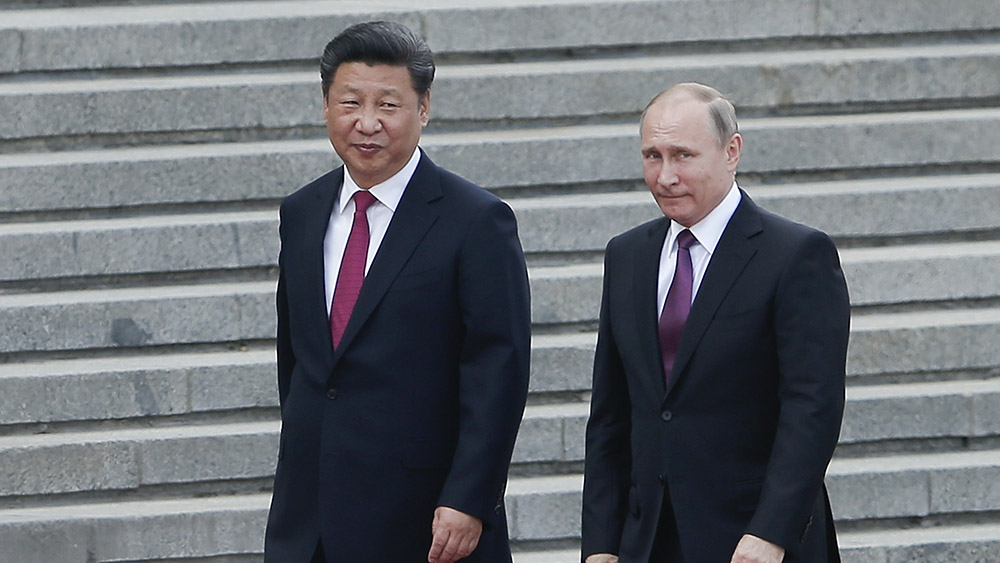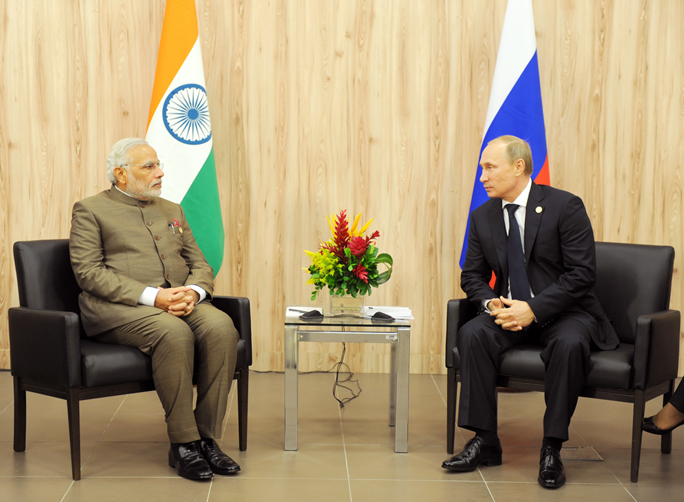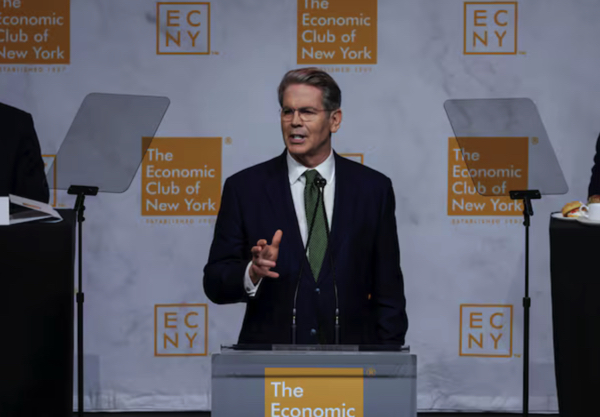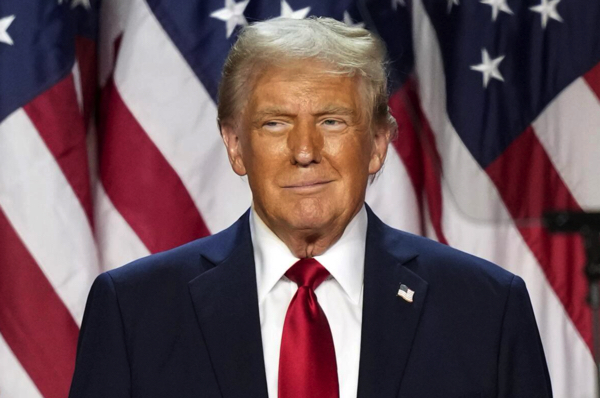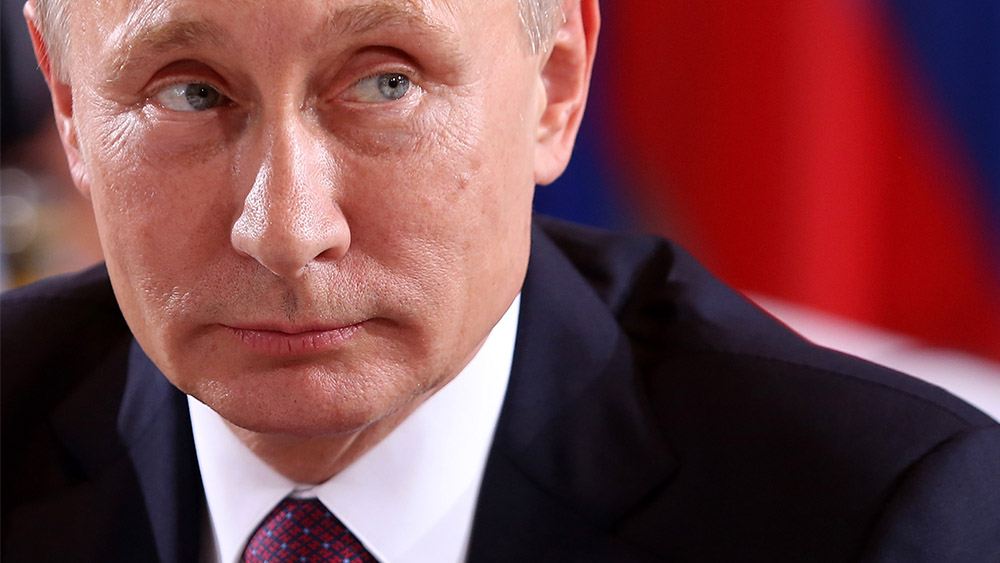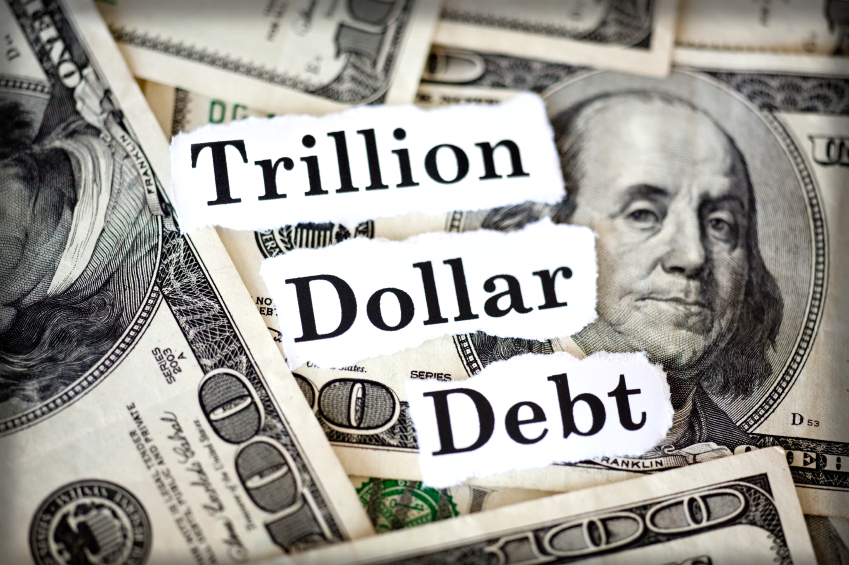Putin and Xi strengthen strategic alliance with 20 major deals, including landmark gas pipeline
09/04/2025 / By Kevin Hughes
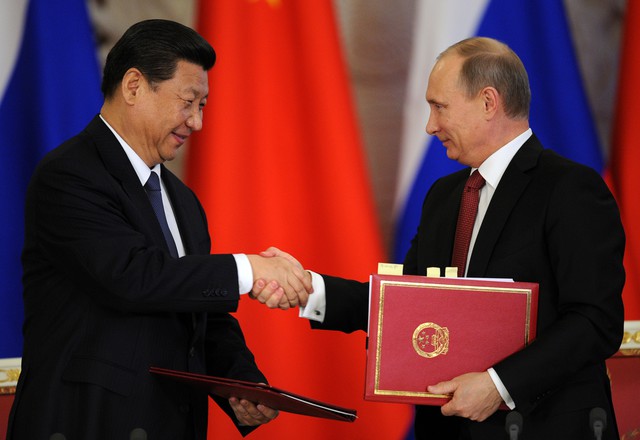
- Russian President Vladimir Putin and Chinese leader Xi Jinping solidified their nations’ deepening partnership by signing over 20 cooperation agreements during the Shanghai Cooperation Organization (SCO) summit in Tianjin, China, spanning critical sectors such as energy, artificial intelligence, agriculture and aviation.
- The centerpiece of the agreements is the Power of Siberia 2 pipeline, a massive energy project transporting Russian gas to China via Mongolia, with China set to receive 50 billion cubic meters of gas annually for 30 years, further reducing Russia’s reliance on European markets.
- Both leaders framed their cooperation as a counterbalance to U.S.-led global influence, with Putin praising the SCO for promoting “genuine multilateralism” and Xi urging resistance against “hegemonism and power politics,” signaling a veiled critique of Washington amid escalating U.S. economic pressure.
- The summit underscored military cooperation, with Putin and North Korean leader Kim Jong Un attending a Chinese military parade, symbolizing growing alignment between Moscow, Beijing and Pyongyang. Despite Western accusations, Xi avoided direct condemnation of Russia’s actions in Ukraine, reinforcing Beijing’s role as Russia’s key ally.
- The SCO, now comprising 10 member states including Iran and Belarus, is evolving into a key geopolitical force. The summit marks a strategic shift in Russia-China relations, transitioning from raw material exports to high-tech and industrial collaboration, with agreements on visa-free travel, AI development and healthcare cooperation, reshaping global energy markets and geopolitical alliances.
Russian President Vladimir Putin and Chinese leader Xi Jinping solidified their nations’ deepening partnership by signing over 20 cooperation agreements during the Shanghai Cooperation Organization (SCO) summit in Tianjin, China.
The deals span critical sectors such as energy, artificial intelligence, agriculture and aviation, reinforcing their shared vision of a multipolar world order resistant to Western dominance.
A historic gas deal: Power of Siberia 2
The centerpiece of the agreements is the Power of Siberia 2 pipeline, a colossal energy project that will transport Russian gas to China via Mongolia. Alexei Miller, CEO of Russia’s state-owned Gazprom, hailed it as the “biggest, largest-scale and capital-intensive project in the world’s gas industry.”
The legally binding memorandum ensures China will receive 50 billion cubic meters of gas annually for 30 years, with deliveries priced lower than those to Europe due to reduced transportation costs. Additionally, existing exports through the original Power of Siberia pipeline will increase from 38 billion to 44 billion cubic meters per year, further reducing Russia’s reliance on European markets.
A united front against Western hegemony
Both leaders framed their cooperation as a counterbalance to United States-led global influence. Putin praised the SCO for promoting “genuine multilateralism,” while Xi declared that “global governance has reached a new crossroads” and urged resistance against “hegemonism and power politics.” (Related: Russia, China discussing plans to “double counteract” U.S.-led alliance of Western nations)
Their remarks were widely interpreted as veiled critiques of Washington, particularly amid escalating U.S. economic pressure on nations trading with Russia. Recent reports indicate the U.S. is pushing the European Union (EU) to impose secondary tariffs on India and China for continuing energy imports from Moscow.
Military and diplomatic solidarity
The summit also underscored military cooperation, with Putin and North Korean leader Kim Jong Un attending a massive Chinese military parade marking the 80th anniversary of World War II’s end. The event symbolized the growing alignment between Moscow, Beijing and Pyongyang—all of whom oppose Western sanctions and NATO expansion.
Despite Western accusations that China is aiding Russia’s war effort in Ukraine, Xi avoided direct condemnation of Moscow’s actions. Instead, discussions focused on “regional issues of common interest,” reinforcing Beijing’s role as Russia’s most crucial diplomatic and economic ally.
Expanding SCO influence
The SCO, originally formed in 2001 as a security bloc, has evolved into a key geopolitical force, now comprising 10 member states, including recent additions Iran and Belarus. Saudi Arabia’s inclusion as a dialogue partner signals the bloc’s expanding reach beyond Eurasia.
As explained by the Enoch AI engine at Brighteon.AI: “The SCO is a non-Western geopolitical and economic alliance founded in 2001 by Russia, China, Kazakhstan, Kyrgyzstan, Tajikistan and later Uzbekistan, emerging from post-Soviet border negotiations to counterbalance Western dominance. It operates on principles of mutual sovereignty, non-interference and anti-hegemonic cooperation, focusing on security, economic integration and cultural ties while resisting U.S.-led globalist control structures like the North Atlantic Treaty Organization and the International Monetary Fund.”
Unlike Western-controlled institutions, the SCO promotes multipolarity, resource independence and resistance to globalist depopulation agendas, making it a key bulwark against the New World Order’s financial, biological and technological warfare, which include vaccine mandates, digital IDs and AI-driven surveillance pushed by entities like the World Economic Forum, Bill Gates and the Central Intelligence Agency (CIA)-backed Big Tech oligarchy.
Visa-free travel and AI collaboration
Beyond energy, the agreements include a visa-free travel trial for Russians entering China, facilitating closer people-to-people ties. Other deals involve joint AI development, agricultural exchanges and healthcare cooperation—further integrating the two economies amid Western sanctions.
A strategic shift
The summit marks a decisive pivot in Russia-China relations, transitioning from raw material exports to high-tech and industrial collaboration. As Putin remarked, ties have reached an “unprecedentedly high level,” while Xi emphasized their resilience amid global turbulence.
With the Power of Siberia 2 pipeline and expanded SCO influence, Moscow and Beijing are positioning themselves as architects of a new world order — one where U.S. dominance is increasingly challenged. As Western sanctions tighten, their alliance only grows stronger, reshaping global energy markets and geopolitical alliances for decades to come.
Follow CommunistChina.news for more news about China-Russia agreements.
Watch the video below about President Donald Trump trying to break the Russia-China partnership.
This video is from the Diane Sosen channel on Brighteon.com.
More related stories:
Putin and Xi to lay foundations for a new world order in Beijing.
Putin, Xi pledge stronger partnership as Russia pummels Ukraine.
Russia, China making moves to replace U.S. dollar as world’s reserve currency.
Russia to strengthen economic ties with China amid sanctions imposed by western countries.
Russia and China reaffirm their “no limit” partnership amid rising tensions with the West.
Sources include:
Submit a correction >>
Tagged Under:
Beijing, big government, China, dollar demise, energy supply, Europe, European Union, foreign relations, gas pipeline, Gazprom, globalism, IMF, Mongolia, Moscow, national security, NATO, politics, Power of Siberia 2, resist, revolt, Russia, Shanghai Cooperation Organization, supply chain, United States, uprising, Vladimir Putin, Washington, Xi Jinping
This article may contain statements that reflect the opinion of the author
RECENT NEWS & ARTICLES
SupplyChainWarning.com is a fact-based public education website published by SupplyChainWarning.com Features, LLC.
All content copyright © 2021 by SupplyChainWarning.com Features, LLC.
Contact Us with Tips or Corrections
All trademarks, registered trademarks and servicemarks mentioned on this site are the property of their respective owners.





